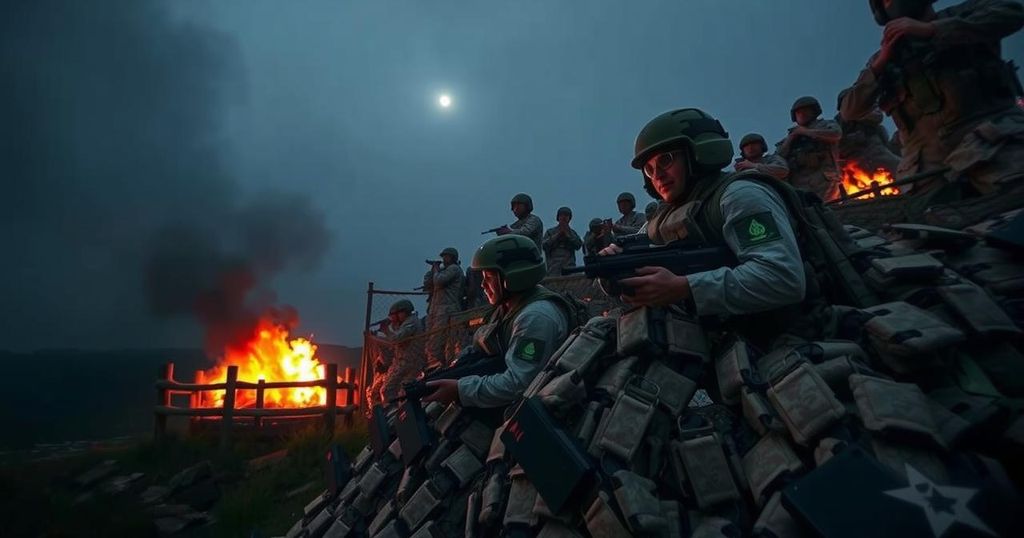Global news
AGNES CALLAMAR, AGNES CALLAMARD, AMNESTY INTERNATIONAL, ASIA, CONFLICT, DEVELOPMENT AID, EUROPE, GAZA, GAZA STRIP, HUMANITARIAN CRISIS, ISRAEL, ISRAEL-PALESTINE CONFLICT, KNESSET, LA, LAZZARINI, LONDON, MIDDLE EAST, PHILIPPE LAZZARINI, UN, UN GENERAL ASSEMBLY, UNITED KINGDOM, UNRWA, WEST BANK
Isaac Bennett
0 Comments
IMPACT OF ISRAEL’S LEGISLATION ON UNRWA AND PALESTINIAN REFUGEES
The Israeli Knesset has passed laws restricting UNRWA’s operations, jeopardizing vital services for Palestinian refugees. UNRWA provides essential aid, education, and medical care in Gaza and the West Bank. Critics warn these changes could lead to humanitarian disasters and undermine the rights of refugees amidst ongoing military conflicts in the region. International reactions condemn the legislation as an assault on refugee rights and call for support for UNRWA amidst this crisis.
Recent developments indicate a troubling shift in the support for Palestinian refugees as the Israeli government has passed laws to significantly restrict the operations of the United Nations Relief and Works Agency (UNRWA). This non-governmental organization is essential for providing food, health care, and educational services to millions of Palestinian refugees in territories like Gaza and the West Bank. The legislation, backed by the Knesset, prohibits UNRWA from operating within Israeli territory and forbids Israeli authorities from engaging with the agency hence severely jeopardizing humanitarian aid, particularly amidst the ongoing humanitarian crisis in Gaza.
The repercussions of this legislative move are expected to be catastrophic, particularly for the already vulnerable population in Gaza. Philippe Lazzarini, the UNRWA Commissioner-General, has passionately voiced that the cessation of UNRWA’s operations would not only exacerbate existing humanitarian issues but could also lead to increased radicalization among youth deprived of education and essential services. As the struggle for the right of return hangs in the balance, the agency’s potential dissolution raises grave concerns about the future of the Palestinian refugee cause.
In light of these changes, many international observers, including human rights organizations, have expressed outrage, asserting that the actions taken by Israel represent an outright violation of international obligations and jeopardizes the fragile peace within the region. They warn that more than simply terminating aid, the laws threaten the very existence of the refugee status for many Palestinians, setting a dangerous precedent that might undermine international humanitarian standards.
Critics of the Knesset’s decision, including Amnesty International’s Secretary-General Agnes Callamard, have labeled it an unconscionable assault on the rights of Palestinian refugees, reinforcing fears that, without UNRWA, aid delivery will plummet, leaving many without vital support. The agency, established in response to the Nakba in 1948, has since been a cornerstone of the international community’s attempt to provide stability and support to Palestinians, making any efforts to dismantle it deeply concerning.
As the humanitarian situation in Gaza deteriorates with continuous military operations and extensive loss of life, the absence of UNRWA would critically impede relief efforts at a time when the population is increasingly reliant on humanitarian aid. The situation exemplifies not only the humanitarian crisis but also the broader implications regarding refugee rights, community structure, and the potential escalation of conflict depending on how events unfold in the coming months.
In this context, it is vital that the international community engages vigorously to protect the rights of Palestinian refugees and call for adherence to humanitarian laws, ensuring that UNRWA’s vital role is acknowledged and supported moving forward.
This ongoing situation serves as a poignant reminder of the intersection between humanitarian needs and geopolitical decisions, and the requirement for a coordinated response from global actors to avert further escalation and suffering.
The current situation in southern Lebanon, alongside the broader issues facing Palestinian refugees across the region, stems from decades of conflict and a complex interplay of political dynamics. The establishment of UNRWA in 1949 was a direct response to the displacement of Palestinians following the 1948 Arab-Israeli conflict, recognized as the Nakba. This agency has since provided critical support, including education, health care, and social services to millions. Recent governmental actions by Israel aimed at restricting UNRWA’s operations reflect a broader strategy concerning refugee status and rights. As humanitarian needs in Gaza heighten due to ongoing military actions, these legislative changes pose significant threats to the infrastructure of support for Palestinian refugees, raising urgent concerns among advocates for human rights and humanitarian law.
In conclusion, the passage of laws to restrict UNRWA’s operations by the Israeli government poses an existential threat to Palestinian refugees who rely on the agency for critical services. The potential cessation of UNRWA’s work in Gaza and the West Bank not only jeopardizes humanitarian aid but also raises alarms regarding the rights and futures of countless individuals. As international advocacy groups rally against these legislative changes, it is crucial for the global community to reaffirm its commitment to the humanitarian principles that UNRWA embodies and ensure the continued support for Palestinian refugees in their quest for rights and dignity.
Original Source: www.arabnews.com




Post Comment